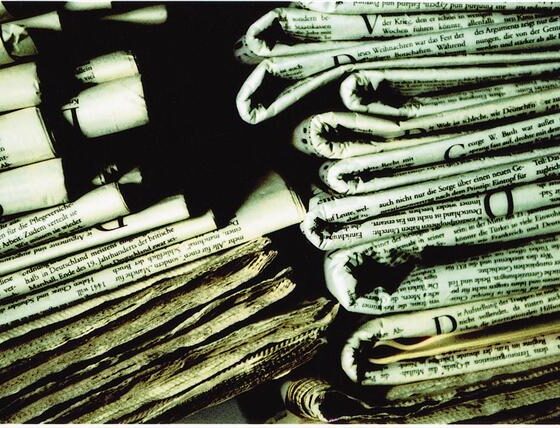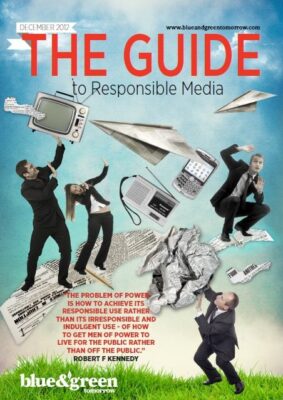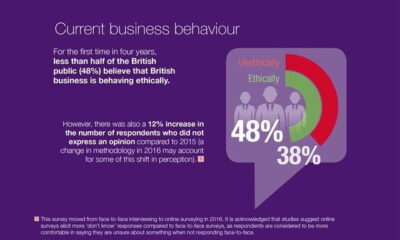

Features
Comedians get serious about British media
One sixth of arguably the greatest comedy troupe in history this week spoke out on the ethics of the British press.
John Cleese, the tall one from Monty Python, told the Guardian that apart from the Independent, the Daily Mirror and the Guardian itself, the country’s media was made up of some of the “most appalling, depraved, disgusting, amoral creatures you could find anywhere outside of prison”.
He added, “And of course many of them are going to be inside a prison soon”, hinting towards the former News of the World journalists and editors currently going through the courts over phone hacking and other misdemeanours.
Cleese’s outburst came during a promo interview for his latest film, Planes – a computer-animated story from Disney, in which he provides the voice for Bulldog, a de Havilland DH.88 Comet aeroplane. Getting a comment on the responsibility and moral compass of the press was unlikely to have been high on the journalist Andrew Pulver’s agenda. As it is, the video interview has been shared on social media hundreds of times.
Cleese is not the first famous face to voice his disdain towards one or all of the nationals. Stephen Fry recently launched an all-out attack on the Daily Mail, or rather its editor Paul Dacre, on his Tumblr blog. The blog post was a response to a particularly insensitive Mail article, written by Adrian Hilton, about Fry’s calls for Russia to be stripped of the 2014 Winter Olympics because of its anti-gay laws.
The QI host and national treasure wrote, “Dacre is, all those who have had the misfortune to work for him assure me, just about as loathsome, self-regarding, morally putrid, vengeful and disgusting a man as it possible to be. His power is absolute.
“Cross him either in private or public and you will be assassinated by his sycophantic squad of columnist minions, all of them infected with his brand of repulsive hypocritical and gleeful spite, ready to vomit out a screed against the BBC […] or any other institution they hate.”
Third Sector magazine recently provided an example of Dacre’s hypocrisy, claiming that he gets paid more money annually than all the “fat cat” bosses of the 14 charities the Mail chose to accuse of “hideous hypocrisy” over their supposedly excessive paypackets earlier this month. Fry adds another, saying, “He sends his son to Eton, but somehow mocks me for being posh.”
The Daily Mail may be Alan Partridge’s favourite newspaper, but Steve Coogan – the actor who portrays Partridge on television and the big screen – is one of its vocal critics.
“The Daily Mail is worse than the redtops because it has this semblance of respectability”, he said in a Newsnight appearance in 2011.
“To me the Daily Mail is like a used car salesman in a cheap suit because it masquerades as having this respectability about it and yet it peddles the same kind of hate-mongering [as] the redtops.”
Alongside the actor Hugh Grant, Coogan helped found the campaign group Hacked Off, which is striving for a “free and accountable press”. Both men were victims of phone hacking – the public revealing of which ultimately led to the News of the World’s demise in July 2011. Two of its former editors, Rebekah Brooks and Andy Coulson, are among those awaiting trial for a mixture of perjury, corruption and conspiring to intercept communications.
Cleese, Fry and Coogan are three very different comedians, and have very different reasons for their hatred towards the majority of the British press.
As iconic Torquay hotel owner Basil Fawlty in the much-loved 70s sitcom Fawlty Towers, Cleese famously told his on-screen colleagues, “Don’t mention the war”, after some German guests came to stay.
Rupert Murdoch* and the News of the World’s bosses must have misquoted this line (“Don’t mention the ethics”) when allowing their journalists to hack the phones of murdered schoolgirls and countless others in the public eye. Seemingly anything goes in the search for an exclusive scoop.
Richard Desmond, the proprietor of the Daily Express, famously did the same goose-stepping tirade as Cleese’s character Fawlty when it looked like the Telegraph was going to be bought by a German media company.
It’s reassuring to know that our national newspaper proprietors and editors are the ethical moral guardians of British society.
* Stephen Fry and Hugh Laurie parodied the 1946 film It’s a Wonderful Life in a brilliant sketch about a world in which Rupert Murdoch didn’t exist. If you haven’t seen it, it’s well worth a watch.
Further reading:
A free press would be a good idea
Freedom of expression is not the same as a freedom to mislead
Defenders of a free press are being dishonest
A short history of trying to regulate an irreverent, unruly and opinionated press































